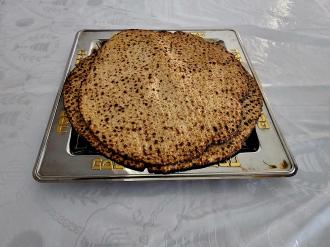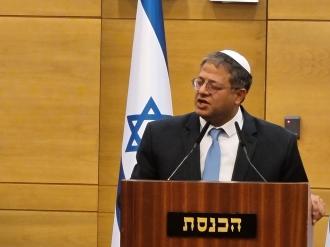In this week's Parsha, T’rumah, Moshe instructs his people to collect building materials to build the Mishkon. The Mishkon was the structure that was designed to house the Presence of HaShem. Everybody was invited to participate in donating to the cause. However, there was one remarkable criteria that was set. No person was allowed to make a direct contribution. If a person wished to contribute 5 kilo of gold he first had to contribute that gold to the communal fund and from that fund the money was taken for the Mishkon. In other words, the Mishkon could only be built from communal funds. Private funds were not accepted. Why not?
The relationship that exists between HaShem and His people can be described as that of a father and his child. There are two aspects which are associated in this relationship.
- The very existence of the son indicates that there is a father. Even when the father is not present, his existence is evident by the very being of the son.
- The father revels in the accomplishments of the son particularly when the son points to the father as the source of his achievement.
The world which HaShem created was intended to be a place in which HaShem would hide His Presence. HaShem wanted to be hidden behind the veil of Nature. Nevertheless, He wanted that Mankind should know Him; that Mankind should discover Him. He wanted that Mankind should recognize that Nature is but a veil that is hiding Him.
To this end He chose a nation whose very existence would indicate that HaShem exists and continues to participate in the daily running of the world. Only a nation, an organism that is able to live on beyond the lifetime of a single human being, could serve this purpose. HaShem needed to make a nation out of Avraham to carry out this mission. Avraham himself could not accomplish this purpose because once Avraham passes on who will be there to testify HaShem's presence to the world?
The Jewish people from their very inception defied all laws of history. We should never have been freed from Egyptian slavery, we should have assimilated within Egyptian society. We continue to defy the laws of demographics with our ongoing existence as a nation who has been exiled 2,000 years and lives with no land. Hence, it is us who indicate by our very existence that HaShem is present. We can therefore say that we are the Throne upon which HaShem sits. It is upon us that He rests His Presence in this world.
The second aspect is also applicable to us. In Psalm 22 King David writes about HaShem “You are Holy, still enthroned upon the songs of Israel in praise of Your mighty acts.” King David depicts HaShem as sitting upon the throne that is made of the songs that Israel sings. The picture emerges of a father sitting in the audience while his son delivers his valedictory in which he credits his success to his father's guidance. The father beams with joy; he is enthroned upon his son's praise.
Just as HaShem is eternal His throne too must be eternal. It is for this reason that only a nation can fill that role – not an individual. Individuals are not eternal.
Let us return to our question; Why must the funds and material of Mishkon come from the communal fund and not from private individuals? The answer is because the individual can only serve as the Throne when he is a part of the nation. Inasmuch as a person sees himself independent from the nation he cannot be the carrier of HaShem's Presence.
Many people think of Achim as an organization that reaches out to those individuals who wish to learn more about their rich Jewish heritage. This is an accurate but only partial definition of who we are. Achim is an organization that is dedicated to uniting those individuals into the fabric of our nation.
This Tuesday Achim will embark upon a remarkable campaign. In one day we hope to raise $100,000. Everybody is encouraged to join in making this goal a reality. When participating I ask you to appreciate that you are not simply supporting an effort that helps individuals but you are supporting an effort that builds the Jewish nation.
How appropriate it is that we read this Parsha on the eve of Achim's campaign!

















